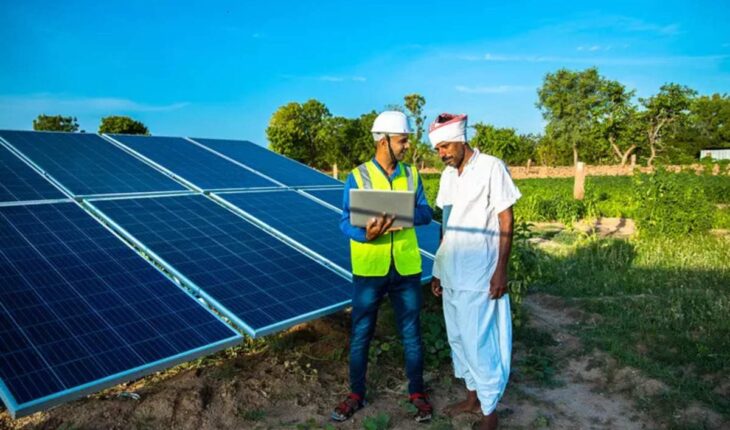In her interim Budget day speech, Finance Minister Nirmala Sitharaman highlighted Prime Minister Narendra Modi’s ambitious plan to electrify one crore households across India using rooftop solar panels, promising an annual saving of Rs 15,000 per household. This initiative, aiming to install mid-sized systems (1-2 kilowatt) for households consuming less than 300 units of electricity monthly, represents a significant financial commitment, potentially exceeding Rs 1 lakh crore. The government plans to increase the current subsidy from 40% to 60%, with the balance financed by private developers linked to the Power Ministry, ensuring both quality installations and reliable service. This policy introduces a ‘net-metering’ system, allowing households to sell surplus electricity back to the grid, offsetting their loan costs. However, the practical implementation of this system remains complex. Given that the majority of Indian households consume between 100 and 120 units of power monthly, identifying one crore eligible households should be feasible. A notable shift with this policy is the central government’s direct involvement in promoting solar energy, moving away from relying on state power distribution companies (discoms), which have historically shown little interest in transitioning high-consumption customers to decentralized energy solutions. This strategy bypasses discoms, which hold detailed consumer power usage data, raising questions about its effectiveness. The central government’s effort to invigorate a lagging initiative is commendable. The transition to decarbonized power sources must include residential sectors to be truly impactful. Despite a goal of 40 GW, only 12 GW of rooftop solar capacity has been installed, with a mere 2.7 GW attributed to residential setups. This new push could stimulate the domestic solar panel industry, emphasizing the use of locally produced panels. However, for this initiative to succeed and overcome obstacles faced by previous efforts, it must be adapted to accommodate state-specific needs, ensuring a unified approach towards India’s solar energy future.
Solar shift a step towards brighter tomorrow
Published Date: 10-02-2024 | 12:40 am




